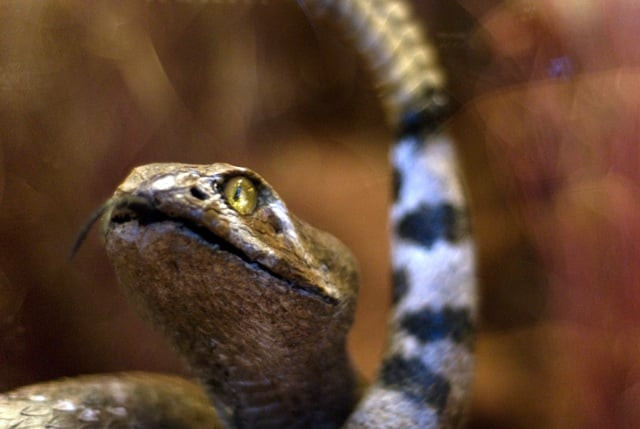Student, bitten by a snake at LUMHS hostel, dies on Friday
Fatima was taken to two hospitals before being given antidote.

Student, bitten by a snake at LUMHS hostel, dies on Friday
Twenty-year-old Rida Fatima died on Friday more than 72 hours after a snake bit her in her room. Fatima was not administered anti-venom immediately upon being taken to hospitals, health professionals said.
Fatima was a student at Liaquat University of Medical and Health Sciences (LUMHS) in Jamshoro. She was sleeping in her dorm room when a snake bit her on Monday night. She was initially taken to Jamshoro hospital, located on the premises of the university, from where she was shifted to Isra University Hospital in Hyderabad, which is right next to Jamshoro. From here she was referred to Civil Hospital Hyderabad where she received her first dose of anti-venom.
According to a family member, Fatima spent two hours in Jamshoro hospital where the doctors could not establish whether it was a case of snake bite or not, and did not give her the ASV vaccine – the anti-venom. “Even the seven-factor vaccine (given to stop bleeding), which costs around Rs200,000, was not given in time.” he said. “The doctors prescribed it late and it had to be bought from Karachi.”
Fatima’s father, Haji Shamsuddin Memon, said that she was given the anti-venom around 8 pm while she was bitten around 5:30 am.
After 12 hours at Civil hospital, Fatima’s white blood cells began to break down rapidly. She began to bleed whenever she was injected with the venom antidote every two hours. Fatima’s family said that she was given 12 doses of anti-venom while Dr Bikha Ram, the incharge of medical unit four at Civil hospital, said that 10 doses were given.
On Thursday Fatima was brought to National Institute of Blood Diseases Karachi, where she remained till she died on Friday. She was buried in her hometown in Tando Muhammad Khan district. According to haematologist Tahir Shamsie, who treated Fatima in Karachi, the venom destroyed her anti-coagulation system, causing her to bleed profusely. “Her haemoglobin had plunged to 6 g/dl by the time she was in Karachi,” he said. “Her organs were bleeding one after the other uncontrollably.”
Dr Shamsie said that Fatima’s symptoms suggested that a viper snake bit her. “She would have survived if the anti-venom was given to her within two hours after she was bitten.” She was not even given the seven-factor vaccine to stop bleeding.
University’s reaction
However, the spokesman of LUMHS, Dr Saroop Bhatia, said that Fatima was given the first dose of venom antidote as soon as she was admitted in the Civil Hospital at around 9 am. Nevertheless, he confirmed that she was not given the seven-factor vaccine at Jamshoro Hospital. But Bhatia did not confirm whether the hospital stocked up on the vaccine or not.
Meanwhile, the university officials were surprised at the presence of a snake in the room. They searched the hostel premises after the incident but did not find the reptile.
The hostel provost, Dr Adeela, said that the rooms do not have enough space to allow a snake to enter. “This is the first time in my 11-year service at the hostel that I have heard of such an incident,” she said. “The rooms are sealed completely. They don’t even have an attached washroom.”
Dr Adeela said that Fatima’s room was on the ground floor and she was sleeping with two other girls. Ironically, her sister, Dr Nehal Memon, was sleeping on the floor but the snake did not bite her.
The university has initiated an inquiry into how a snake ventured into the hospital premises and whether there was a lapse in treatment by the Jamshoro hospital. Fatima’s family claim that the university administration has told them that they will cut off all the trees around the hostel and will secure the boundaries with iron grills and barbed wires.
Published in The Express Tribune, June 30th, 2012.



















COMMENTS
Comments are moderated and generally will be posted if they are on-topic and not abusive.
For more information, please see our Comments FAQ